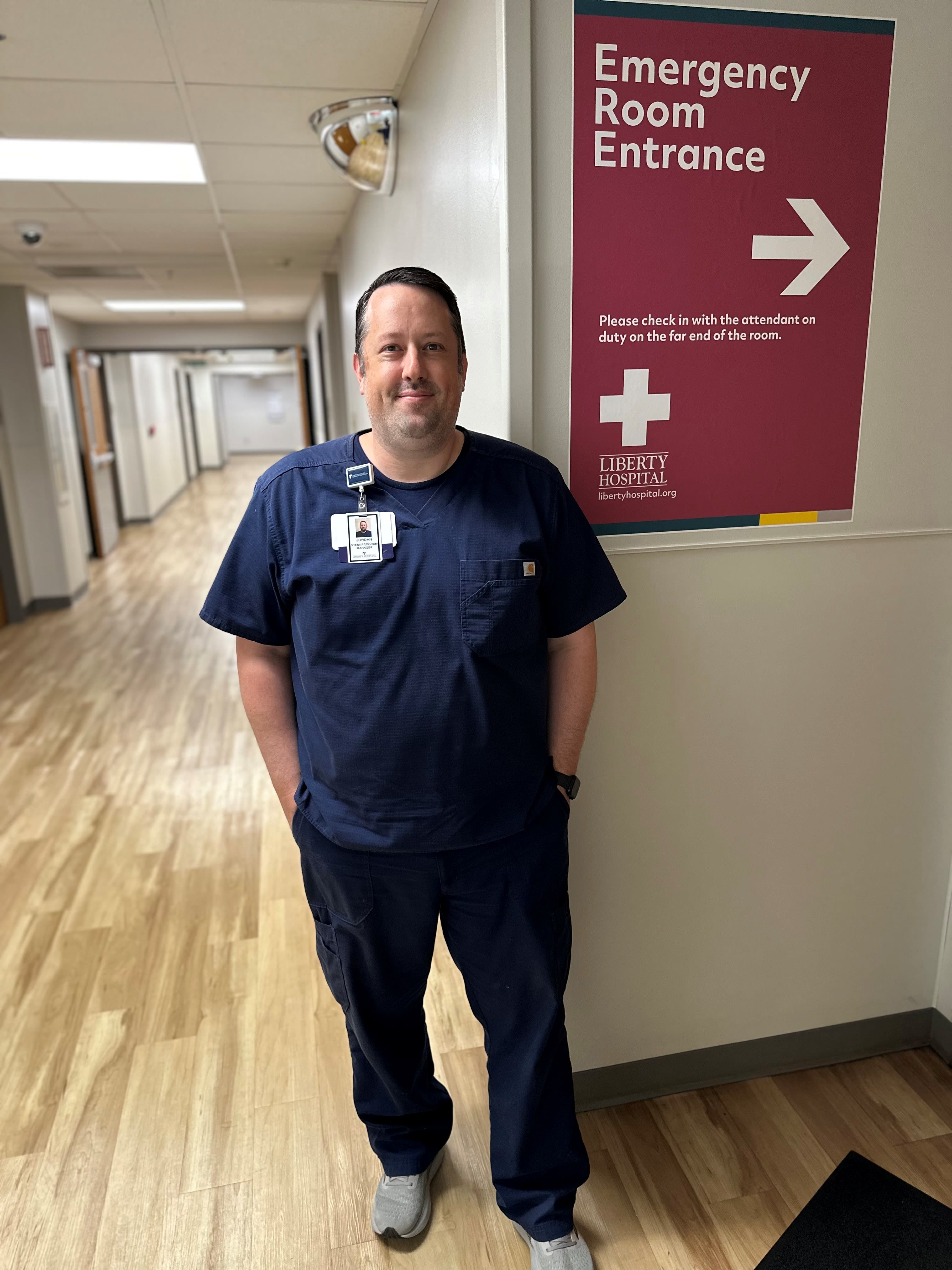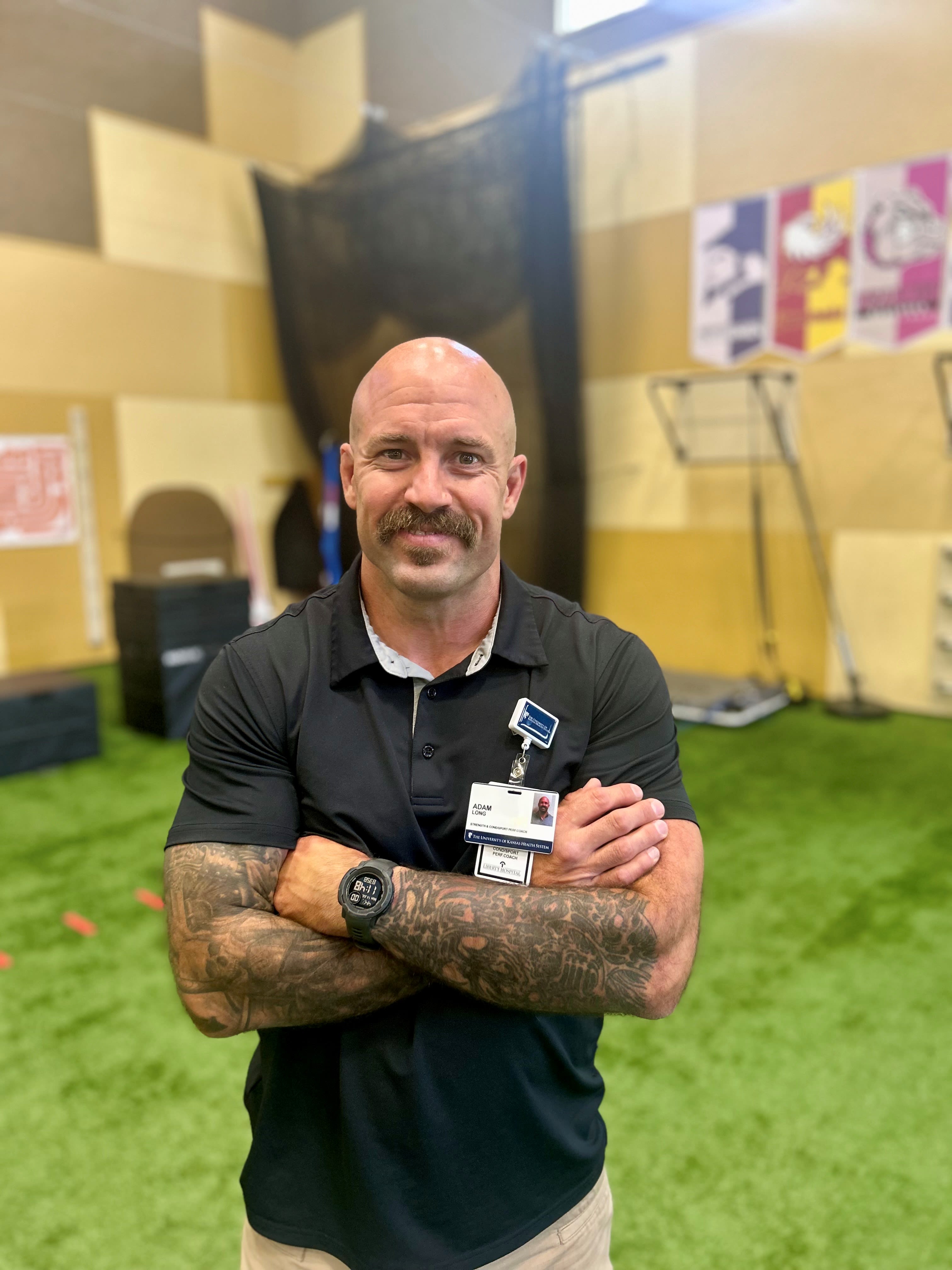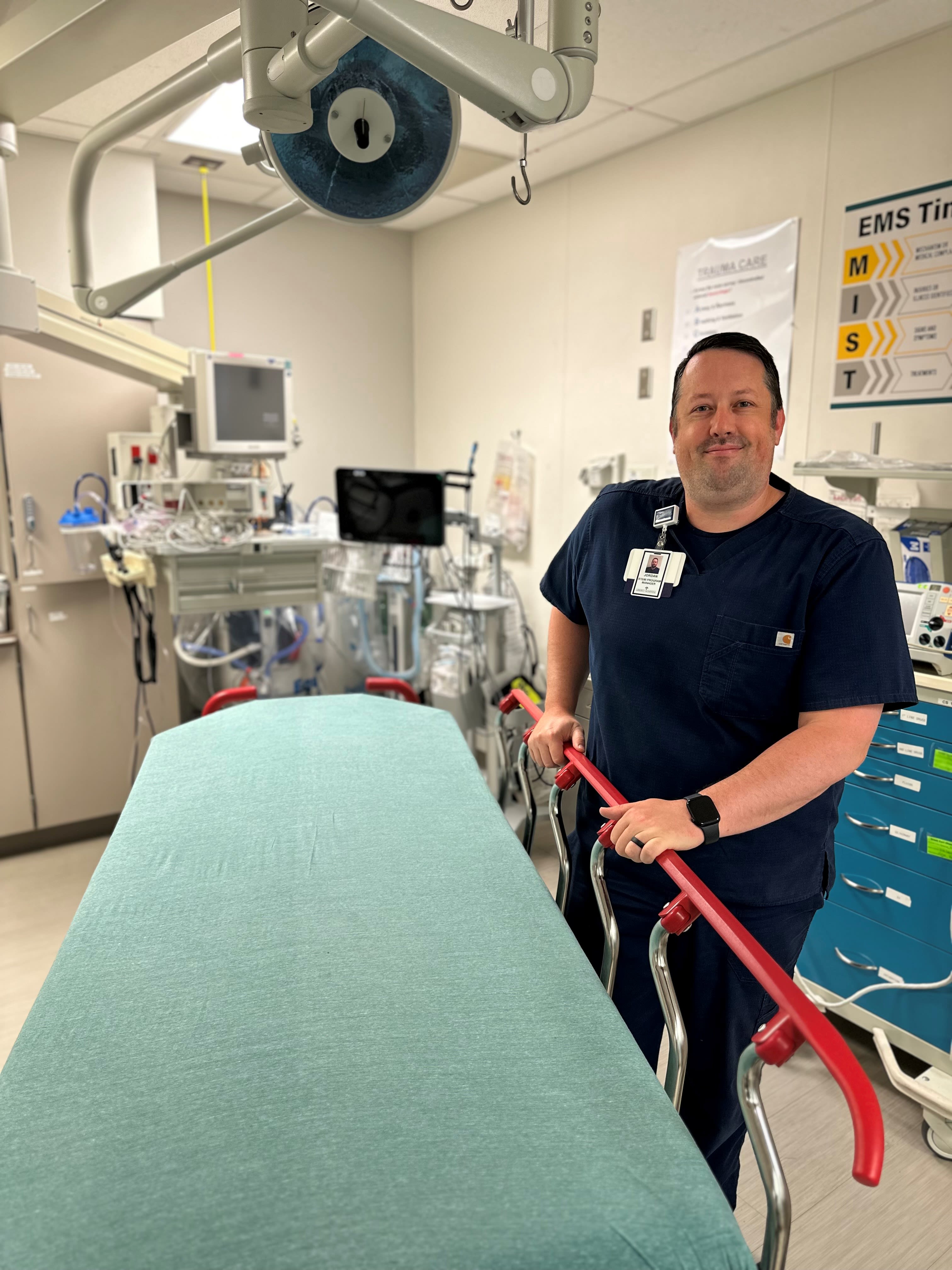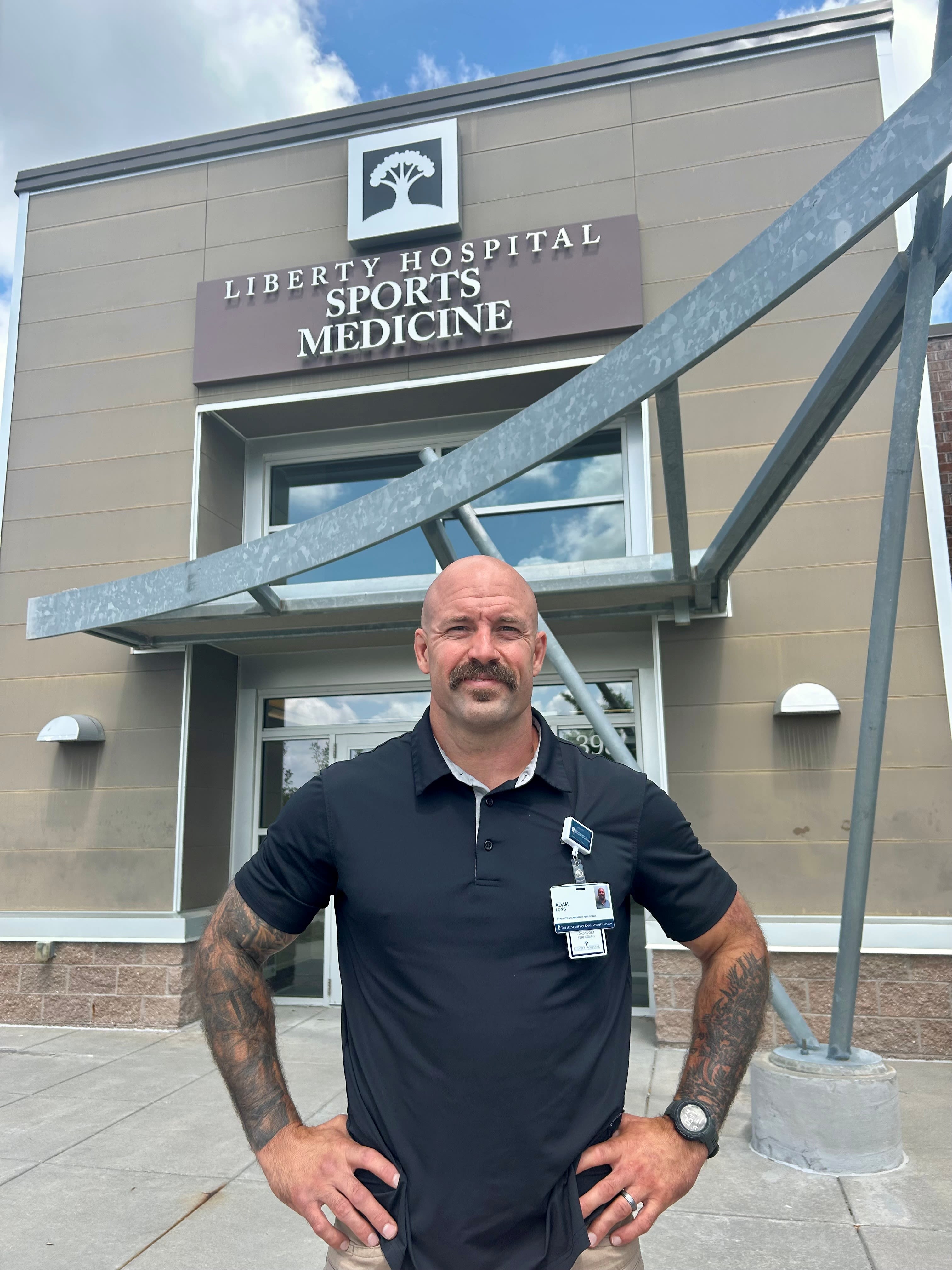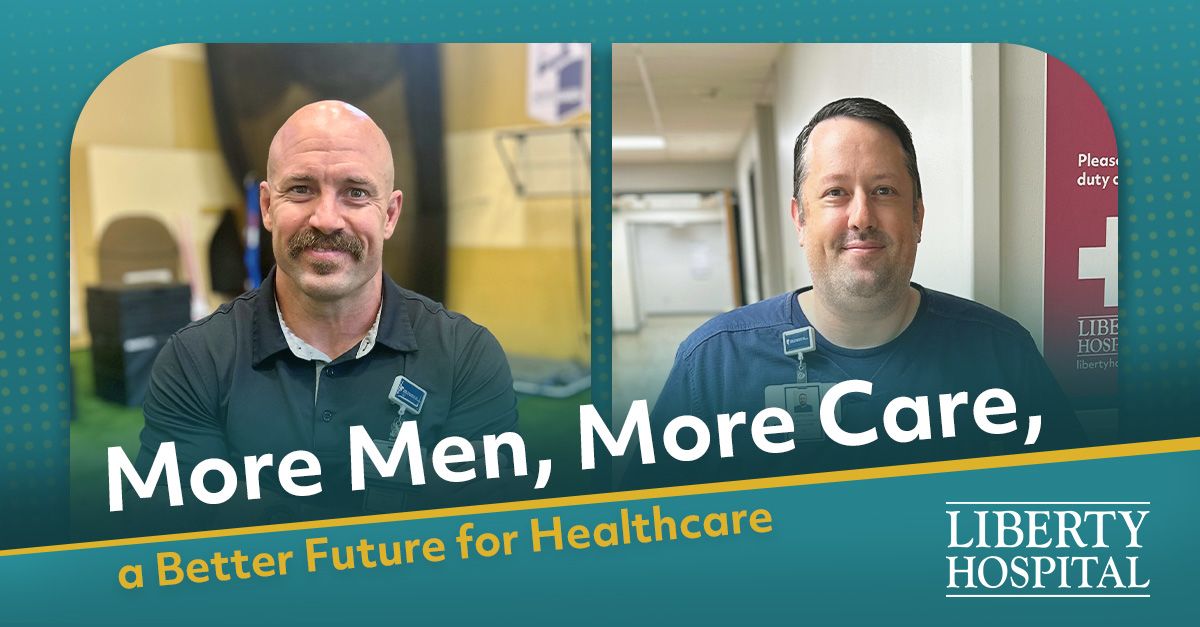
Healthcare is constantly changing. Today, men are taking on roles across every corner of the hospital, from nursing and patient care to security, rehab, administration and sports medicine. Men in healthcare are a critical component in providing personalized patient care and helping to address the healthcare workforce shortage.
During the last two decades, the number of male registered nurses nationwide has risen from 9% in 2000 to 14% in 2022, according to The Wall Street Journal. At Liberty Hospital, men make up 18% of the total workforce, with 9% of patient care RNs and 4% of advanced practice providers being men. For Liberty Hospital and health systems nationwide, the rise of men in patient care roles is a positive development, as they offer fresh and unique perspectives that can help shape lives, support patients and strengthen care teams.
Two of Liberty Hospital’s very own, Jordan Jackson, STEMI Coordinator, and Adam Long, Strength and Conditioning Coach, have careers that span emergency care, heart health, rehabilitation and fitness, mentorship and more.
Representation Matters
According to recent research, male patients, particularly adolescents and older men, report feeling more comfortable discussing sensitive health issues with a male healthcare provider. The lack of male providers in certain specialties could lead to gaps in care and missed opportunities with some health concerns.
While Jordan and Adam work in different environments and specializations, they know not every patient interaction comes easily, especially for men unfamiliar or intimidated by a healthcare setting.
"Men are more private about health issues," Jordan says. "They try to be stoic. But I've had those moments—especially in the ER—where a man will open up to me after sending their family out of the room. It helps to have someone they feel they can relate to."
"Some of the guys I work with say, 'I'm glad it's you. I want to be pushed. I want someone who's been through it.' There's a sense of camaraderie,” Adam says. “And I get it. I'm still lifting and training. I know what they're dealing with."
From Transporter to STEMI Coordinator
Jordan Jackson never planned on a career in healthcare. But what started as a job transporting patients soon grew into something greater.
"I just started talking to people," he says. "Asking what brought them into healthcare. Asking them why they became a surgeon or why they became a nurse. I was inspired by the people I met along the way."
Today, Jordan is a registered nurse and STEMI Coordinator, a role that places him on the frontline of one of the most time-sensitive medical emergencies: heart attacks. Specifically, a STEMI — short for ST-elevation myocardial infarction — requires precise, high-speed coordination between EMS, ER teams and the cath lab.
"When a call comes in, the clock starts immediately," he explains. "It's our job to get that patient diagnosed and treated as fast as possible. Seconds really do matter."
Jordan's days are often a whirlwind of radio calls, clinical decision-making and after-action analysis. "I'm a small cog in a big machine," he said. "But the teamwork here is incredible. We're saving lives every day."
Sports Medicine Meets Preventive Care
While Jordan helps save lives after major cardiac emergencies, Adam’s work is geared toward preventing those events, through exercise and healthy habits.
As a strength and conditioning coach, Adam works out of the Liberty Hospital Sports Medicine Clinic, where he supports athletes returning from injury as well as everyday adults pursuing better health.
"About 90% of the people I see are healthy individuals working to get stronger, improve mobility or stay active," Adam says. "The other 10% are folks coming out of physical therapy. I help bridge the gap."
His journey to healthcare includes athletic training roles at high school and university athletic departments. Now he's found his home at Liberty Hospital.
His clients range from 6-year-olds to 93-year-olds, and no two days are the same. "It's a really diverse group," he says. "I have athletes training for their next season and older adults who just want to be able to move better daily."
Creating Lasting Impacts
For both Jordan and Adam, the work they do is both personal and rewarding.
Jordan recalls one memorable patient, a new mother who experienced a rare post-partum heart attack. "Months later, she brought her baby to the firehouse and thanked everyone who helped save her," he says. "Seeing her hold that child, knowing we gave her more time, is something I'll never forget."
Adam reflects on his daily interactions: "I remind people it's not me doing the work. It's all them. But knowing I'm part of their story, helping them move better, feel better and live better? That's the best part of my job."
Happiness Works Here
Interested in a career at Liberty Hospital? View our current openings or visit our careers page to learn more about a career in healthcare.

